Tamsin Elliott & Tarek Elazhary - So Far We Have Come (2023)
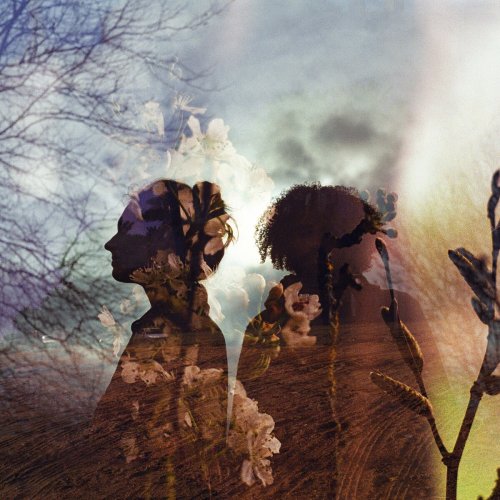
Artist: Tamsin Elliott & Tarek Elazhary, Tamsin Elliott, Tarek Elazhary
Title: So Far We Have Come
Year Of Release: 2023
Label: Penny Fiddle Records
Genre: Word, Folk, Harp, Jazz, Fusion
Quality: 320 / FLAC (tracks)
Total Time: 45:40
Total Size: 106 / 263 Mb
WebSite: Album Preview
Tracklist: Title: So Far We Have Come
Year Of Release: 2023
Label: Penny Fiddle Records
Genre: Word, Folk, Harp, Jazz, Fusion
Quality: 320 / FLAC (tracks)
Total Time: 45:40
Total Size: 106 / 263 Mb
WebSite: Album Preview
01. In the Grey of the Morning (3:18)
02. El Hara (4:36)
03. So Far We Have Come (2:41)
04. The Returning Light // Late Frost (3:41)
05. Taqasim Nahawand (1:38)
06. Hope Is the Thing with Feathers (5:02)
07. Amy Abu El Fanous (4:07)
08. Telaet Ya Mahla Norha // Mundesse (3:52)
09. Taqasim Bayati (2:12)
10. Jala Man Kad Sawarak (5:08)
11. Out of Nowhere (2:29)
12. Barn Elms // Halsway Hornpipe (4:33)
13. Improvisation : Landscapes of El Darb El Ahmar (2:22)
Hot on the heels of a recent review of the Cove EP from Iona Lane & Ranjana Ghatak comes yet another fine release which transcends geographical and cultural boundaries. With So Far We Have Come, Tamsin Elliott & Tarek Elazhary have produced a thoroughly accomplished and enjoyable album that explores and celebrates traits of both English and Egyptian folk traditions.
Through their music, the duo’s self-stated aim is to search for congruities and “foster cross-cultural connection and help to heal the scars of a colonial past though meaningful and conscious collaboration”. So Far We Have Come, with its reflective, captivating, buoyant and at times experimental interactions between their differing approaches, traditions and styles, does not disappoint in attaining these objectives.
Tamsin is not only a folk musician with roots in the dance tunes of the British Isles but also a composer, filmmaker, co-founder of folk-jazz fusion group Solana and member of European folk quintet Herera in addition to numerous other traditional folk and ceilidh groups, received great plaudits for her 2022 debut solo album, Frey, reviewed in Folk Radio here.
Tarek, a composer and teacher of traditional music in Cairo at both the German University, where he also performed with the university’s Arabic ensemble, and the Arabic Oud House, has worked frequently with iconic Iraqi oud maestro and UNESCO Artist For Peace Naseer Shamma. Additionally, he co-founded Dokkan, an instrumental band amalgamating Eastern influences with contemporary Western instrumentation.
Given their backgrounds and mutual desire to widen their horizons, their coming together for musical collaboration almost seems to have been an inevitable outcome. Their first meeting goes back some years to when Tamsin spent time in Egypt on a journey of study, research and exploration of Arabic music and came across Tarek performing in Cairo. Post-Covid lockdowns enabled plans for him to make a reciprocal visit to the UK and work on a collaborative album to be brought to fruition.
The plans were cemented in 2003 thanks to financial and logistical support from Culture Resource المورد الثقافي, EFDSS Alan James Creative Bursary (enabling a residency at Cecil Sharp House), and Help Musicians. Following this residency, the duo relocated to Bristol, Tamsin’s hometown, where their ideas were developed and recorded.
Music from Arabic classical and folk traditions, alongside English dance tunes, inspired the tracks on the album, most of which were composed in early Spring. Tarek’s visa constraints did not aid the process, something which seems to be a recurring issue for those racialised as ethnic minorities, the Global Majority, and the album’s title, So Far We Have Come, is apposite in so many respects, reflecting, as it does, not only the duo’s resilience and perseverance but also, as Tamsin explains “the title of our debut album was born out of a conversation about the progress that has been made in women’s rights in Egypt and the UK. We see how much has changed, and yet how far we have to go – and this echoes across ecological crises, geopolitical tensions, racism and societal disconnection. So Far We Have Come also reflects the distance and barriers we have overcome to create this work together.”
With Tamsin credited with lever harp, piano accordion, quartertone accordion, flute, voice, synths and field recordings, Talek contributes oud, voice and field recordings. Also joining them are illustrious guest musicians, including Archie Churchill-Moss (Moore, Moss, Rutter, Sam Kelly & The Lost Boys & False Lights) on guitar, Rowan Elliott on viola & fiddle, Daniel Gouly (Don Kipper) on clarinets, Ricardo de Noronha (Karama) on percussion and Sam Sweeney on fiddle, together with Leila El Balouty, who provides voice.
The delicate string opening, which introduces the first track, In The Grey Of The Morning, is accompanied by atmospheric background sounds, which could be wind, maybe waves. The woodwind and harp provide an eerie adjunct, creating an image of early morning mist with echoing birds or sea creatures. A distinctive sound, it’s a well-judged opening track that entices the listener.
The lead digital single from the album, El Hara, a busy alleyway in Cairo, is a lively, energetic offering and one of the duo’s first collaborative compositions. The ear-catching opening oud melody is joined by Tamsin’s accordion, brother Rowan’s viola, and Ricardo’s propulsive percussion on a piece that creates a noteworthy Egyptian feel. This is achieved in no small part due to Tamsin’s quartertone accordion being specially tuned and adapted to achieve microtonality, a task undertaken by Nick Hart, who coincidentally, like Tamsin and Tarek, also played a mighty fine set at the recent Folk East Festival.
There is a mood change for the album’s title track, So Far We Have Come. The opening underlying drone sound introduces an accordion melody and the oud on a more contemplative piece, which is perfectly rounded, crossing musical boundaries in a remarkable way.
There is an immediate return to a more up-tempo piece with the third digital single release, The Returning Light/Late Frost, a gorgeously uplifting characteristically English set written by Tamsin, which is full of intrigue and interest and features Sam Sweeney and Archie Churchill-Moss in fine form.
The album contains two taqasim pieces. A form of improvisation which occurs in Arabic music, it is based on the maqam, a system of melodic modes used to create different moods and emotions. Often performed on an instrumental solo, such as the oud, here, on Taqasim Nahawand, the harp is the instrument of choice, its shimmering notes falling like water droplets in a stunningly beautiful composition. In Taqasim Bayan, however, it is the oud that takes centre stage; its deeply resonant, rippling notes, which somehow seem to sustain beyond the norm, take you into a totally different and pleasurable musical world.
On first hearing Hope Is The Thing With Feathers, the second digital single, I immediately thought I was listening to E Langonned-era Alan Stivell; such was the breathtaking nature of the opening harp. As the oud and then the clarinet come to the fore, the music evokes an atmosphere of sublime melancholy.
In addition to snippets of vocalisations, two tracks on the album feature vocals/lyrics. The first of these, Amy Abu El Fanous (The Lantern Bearer), a Palestinian song dramatically delivered by Egyptian singer Leila El Balouty, is a truly memorable rendition, with percussive beats and flute solo adding to the other elements which merge into one extraordinary, dynamic offering. The second, Jala Man Kad Sawarak, sees Tarek taking lead vocals on this love song from the Muwashah tradition. After the opening vocals, the melody evolves into ear-worm proportions, with an extended instrumental section which includes a clarinet solo and chugging percussion before the return of the vocals, reflecting the subject matter of the lyrics as God is asked how such a beautiful being can possibly exist.
With Telaet Ya Mahla Northa/Mundesse, we again have an exciting fusion of cultures. The first song, written by Sayed Darwish, acknowledged to be the father of popular Egyptian music, despite his early death in 1923 aged only 31, is about getting up to milk the cows at sunrise, whilst Mundresse is a 16th Century song from the Playford Manuscripts. This blending of Egyptian and traditional English is performed flawlessly, with the oud and accordion sounding like a match made in heaven/Jannah. Possibly, the only thing needed to complete the picture would be an Egyptian Morris team.
Although different in tempo and feel, this oud/accordion blend shines once again on Ban Elms/Halsway Hornpipe, which evokes a pastoral and maritime England with a very Egyptian twist.
Ambient sounds are a feature of the two tracks yet to be touched on. On Out Of Nowhere, the accordion joins the fluid oud opening to create an atmospheric, almost ethereal, soundscape that gradually gains momentum and volume before returning to a fade. The final track, Improvisation/Landscapes Of El Darb El Ahmar, features, amongst other sounds, field recordings and Daniel Gouly’s clarinet in what is a collage of sound.
So Far We Have Come has both breathtaking and memorable moments that make it such a thoroughly intriguing and enjoyable album. In exploring the possibilities of melding English and Arabic folk traditions, Tamsin and Tarek have created a worthy addition to the musical canons of both cultures.
Through their music, the duo’s self-stated aim is to search for congruities and “foster cross-cultural connection and help to heal the scars of a colonial past though meaningful and conscious collaboration”. So Far We Have Come, with its reflective, captivating, buoyant and at times experimental interactions between their differing approaches, traditions and styles, does not disappoint in attaining these objectives.
Tamsin is not only a folk musician with roots in the dance tunes of the British Isles but also a composer, filmmaker, co-founder of folk-jazz fusion group Solana and member of European folk quintet Herera in addition to numerous other traditional folk and ceilidh groups, received great plaudits for her 2022 debut solo album, Frey, reviewed in Folk Radio here.
Tarek, a composer and teacher of traditional music in Cairo at both the German University, where he also performed with the university’s Arabic ensemble, and the Arabic Oud House, has worked frequently with iconic Iraqi oud maestro and UNESCO Artist For Peace Naseer Shamma. Additionally, he co-founded Dokkan, an instrumental band amalgamating Eastern influences with contemporary Western instrumentation.
Given their backgrounds and mutual desire to widen their horizons, their coming together for musical collaboration almost seems to have been an inevitable outcome. Their first meeting goes back some years to when Tamsin spent time in Egypt on a journey of study, research and exploration of Arabic music and came across Tarek performing in Cairo. Post-Covid lockdowns enabled plans for him to make a reciprocal visit to the UK and work on a collaborative album to be brought to fruition.
The plans were cemented in 2003 thanks to financial and logistical support from Culture Resource المورد الثقافي, EFDSS Alan James Creative Bursary (enabling a residency at Cecil Sharp House), and Help Musicians. Following this residency, the duo relocated to Bristol, Tamsin’s hometown, where their ideas were developed and recorded.
Music from Arabic classical and folk traditions, alongside English dance tunes, inspired the tracks on the album, most of which were composed in early Spring. Tarek’s visa constraints did not aid the process, something which seems to be a recurring issue for those racialised as ethnic minorities, the Global Majority, and the album’s title, So Far We Have Come, is apposite in so many respects, reflecting, as it does, not only the duo’s resilience and perseverance but also, as Tamsin explains “the title of our debut album was born out of a conversation about the progress that has been made in women’s rights in Egypt and the UK. We see how much has changed, and yet how far we have to go – and this echoes across ecological crises, geopolitical tensions, racism and societal disconnection. So Far We Have Come also reflects the distance and barriers we have overcome to create this work together.”
With Tamsin credited with lever harp, piano accordion, quartertone accordion, flute, voice, synths and field recordings, Talek contributes oud, voice and field recordings. Also joining them are illustrious guest musicians, including Archie Churchill-Moss (Moore, Moss, Rutter, Sam Kelly & The Lost Boys & False Lights) on guitar, Rowan Elliott on viola & fiddle, Daniel Gouly (Don Kipper) on clarinets, Ricardo de Noronha (Karama) on percussion and Sam Sweeney on fiddle, together with Leila El Balouty, who provides voice.
The delicate string opening, which introduces the first track, In The Grey Of The Morning, is accompanied by atmospheric background sounds, which could be wind, maybe waves. The woodwind and harp provide an eerie adjunct, creating an image of early morning mist with echoing birds or sea creatures. A distinctive sound, it’s a well-judged opening track that entices the listener.
The lead digital single from the album, El Hara, a busy alleyway in Cairo, is a lively, energetic offering and one of the duo’s first collaborative compositions. The ear-catching opening oud melody is joined by Tamsin’s accordion, brother Rowan’s viola, and Ricardo’s propulsive percussion on a piece that creates a noteworthy Egyptian feel. This is achieved in no small part due to Tamsin’s quartertone accordion being specially tuned and adapted to achieve microtonality, a task undertaken by Nick Hart, who coincidentally, like Tamsin and Tarek, also played a mighty fine set at the recent Folk East Festival.
There is a mood change for the album’s title track, So Far We Have Come. The opening underlying drone sound introduces an accordion melody and the oud on a more contemplative piece, which is perfectly rounded, crossing musical boundaries in a remarkable way.
There is an immediate return to a more up-tempo piece with the third digital single release, The Returning Light/Late Frost, a gorgeously uplifting characteristically English set written by Tamsin, which is full of intrigue and interest and features Sam Sweeney and Archie Churchill-Moss in fine form.
The album contains two taqasim pieces. A form of improvisation which occurs in Arabic music, it is based on the maqam, a system of melodic modes used to create different moods and emotions. Often performed on an instrumental solo, such as the oud, here, on Taqasim Nahawand, the harp is the instrument of choice, its shimmering notes falling like water droplets in a stunningly beautiful composition. In Taqasim Bayan, however, it is the oud that takes centre stage; its deeply resonant, rippling notes, which somehow seem to sustain beyond the norm, take you into a totally different and pleasurable musical world.
On first hearing Hope Is The Thing With Feathers, the second digital single, I immediately thought I was listening to E Langonned-era Alan Stivell; such was the breathtaking nature of the opening harp. As the oud and then the clarinet come to the fore, the music evokes an atmosphere of sublime melancholy.
In addition to snippets of vocalisations, two tracks on the album feature vocals/lyrics. The first of these, Amy Abu El Fanous (The Lantern Bearer), a Palestinian song dramatically delivered by Egyptian singer Leila El Balouty, is a truly memorable rendition, with percussive beats and flute solo adding to the other elements which merge into one extraordinary, dynamic offering. The second, Jala Man Kad Sawarak, sees Tarek taking lead vocals on this love song from the Muwashah tradition. After the opening vocals, the melody evolves into ear-worm proportions, with an extended instrumental section which includes a clarinet solo and chugging percussion before the return of the vocals, reflecting the subject matter of the lyrics as God is asked how such a beautiful being can possibly exist.
With Telaet Ya Mahla Northa/Mundesse, we again have an exciting fusion of cultures. The first song, written by Sayed Darwish, acknowledged to be the father of popular Egyptian music, despite his early death in 1923 aged only 31, is about getting up to milk the cows at sunrise, whilst Mundresse is a 16th Century song from the Playford Manuscripts. This blending of Egyptian and traditional English is performed flawlessly, with the oud and accordion sounding like a match made in heaven/Jannah. Possibly, the only thing needed to complete the picture would be an Egyptian Morris team.
Although different in tempo and feel, this oud/accordion blend shines once again on Ban Elms/Halsway Hornpipe, which evokes a pastoral and maritime England with a very Egyptian twist.
Ambient sounds are a feature of the two tracks yet to be touched on. On Out Of Nowhere, the accordion joins the fluid oud opening to create an atmospheric, almost ethereal, soundscape that gradually gains momentum and volume before returning to a fade. The final track, Improvisation/Landscapes Of El Darb El Ahmar, features, amongst other sounds, field recordings and Daniel Gouly’s clarinet in what is a collage of sound.
So Far We Have Come has both breathtaking and memorable moments that make it such a thoroughly intriguing and enjoyable album. In exploring the possibilities of melding English and Arabic folk traditions, Tamsin and Tarek have created a worthy addition to the musical canons of both cultures.

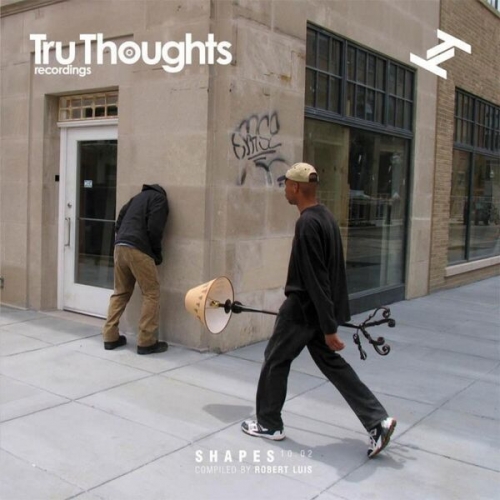
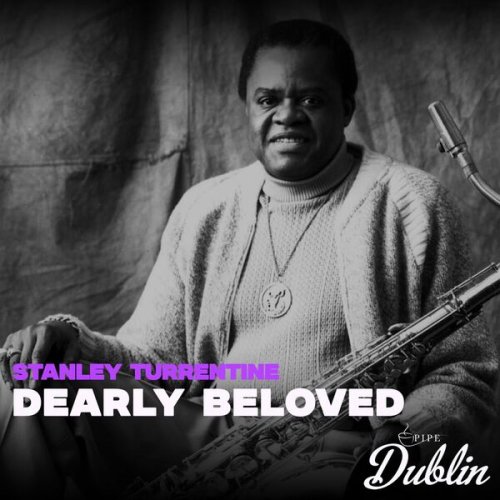
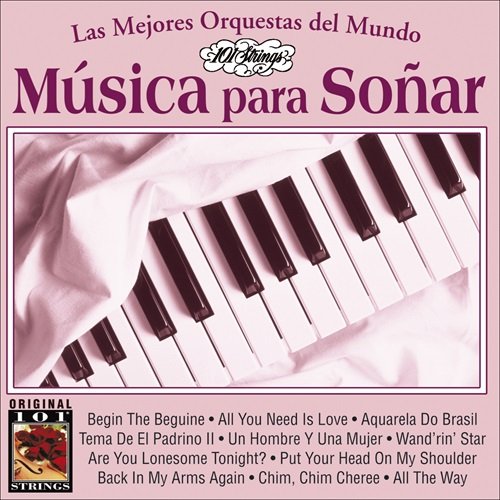



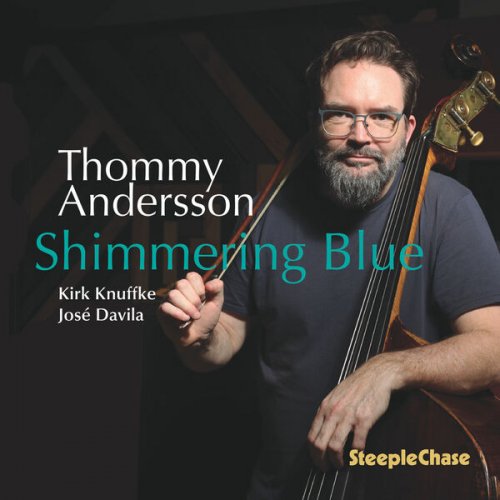
![Owelu Dreamhouse - Owelu Dreamhouse (2026) [Hi-Res] Owelu Dreamhouse - Owelu Dreamhouse (2026) [Hi-Res]](https://img.israbox.com/img/2026-02/05/dyetvafic12nz1s9v6zs98erj.jpg)